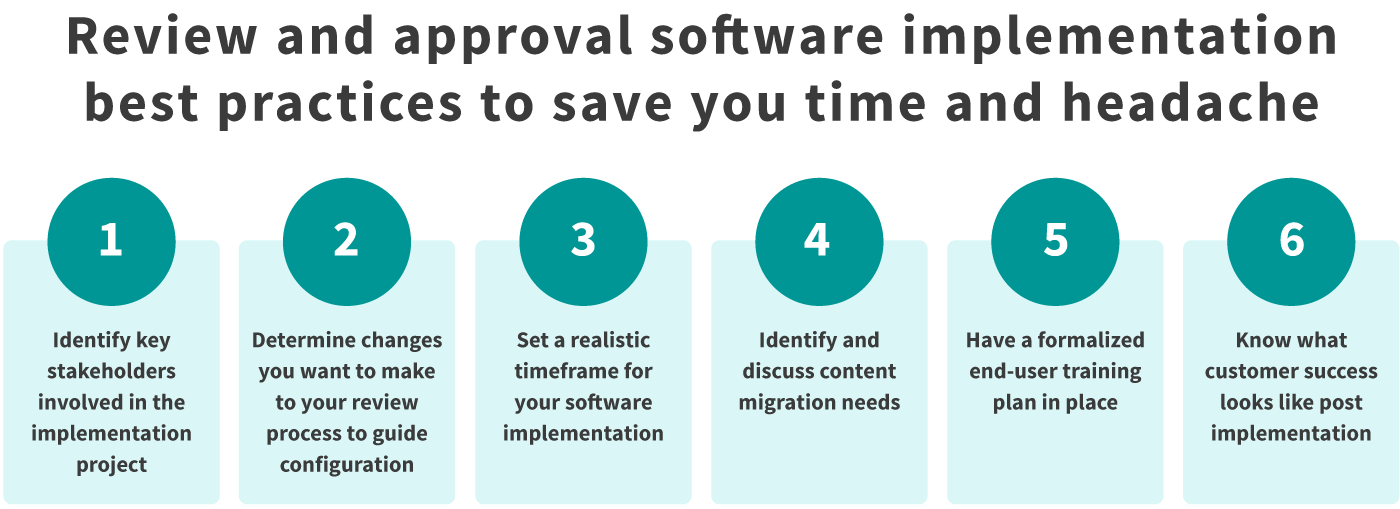Saving time on bookkeeping is possible with the right strategies. It doesn’t have to be a time-consuming task.
Bookkeeping can be tedious and overwhelming. Many small business owners struggle with it. But there are ways to make the process quicker and more efficient. Whether you’re a solo entrepreneur or have a small team, implementing smart techniques can save you hours each week.
This blog will explore practical tips and methods to streamline your bookkeeping tasks. You’ll learn how to stay organized, use technology, and manage finances effectively. By following these steps, you can focus more on growing your business and less on balancing the books. Ready to discover how to save valuable time on bookkeeping? Let’s go in.

Credit: www.constructioncostaccounting.com
Streamlining Your Bookkeeping Process
Streamlining your bookkeeping process can save you valuable time. It can reduce stress and improve accuracy. By making small changes, you can achieve efficient and effective bookkeeping.
Set Clear Goals
Begin by setting clear goals for your bookkeeping tasks. Know what you want to achieve. Define the time you wish to spend on each task. Clear goals help you stay focused and organized.
Establish A Routine
Develop a routine for your bookkeeping activities. Set specific times and days for these tasks. Consistency makes it easier to manage your workload. Routines help you avoid last-minute rushes and errors.
Leveraging Technology
Leveraging technology can greatly simplify your bookkeeping process. With the right tools, you can save time and reduce errors. Understanding how to use these tools effectively is crucial for small business owners. Let’s go into some specific ways technology can help.
Use Accounting Software
Accounting software can automate many bookkeeping tasks. These programs can track expenses, generate invoices, and manage payroll. They provide financial reports and insights. This makes it easier to understand your business’s financial health. Popular options include QuickBooks, Xero, and FreshBooks. Choose a software that fits your business needs and budget.
Automate Repetitive Tasks
Automation can save you hours each week. Set up recurring invoices for regular clients. Use bank feeds to import transactions directly into your accounting software. Reconcile accounts automatically. These small changes can have a big impact. They reduce manual data entry and minimize errors. This means more time to focus on growing your business.
Organizing Financial Documents
Organizing financial documents is key to efficient bookkeeping. Keeping everything in order can save you time and stress. A good organization system helps you find what you need quickly. This section will guide you on how to organize your financial documents.
Create A Filing System
Start by creating a filing system. Use labeled folders for different categories. Examples include expenses, invoices, and bank statements. Each folder should have a clear label. This helps you locate documents easily. Arrange the folders in a logical order. For instance, alphabetically or by date.
Keep your filing system consistent. Always put documents in the right folder. This habit makes it easier to maintain order.color-coding your folders. Different colors can signify different categories. This visual aid speeds up the filing process.
Digitize Records
Digitizing records is another effective method. Scan your paper documents. Save them on your computer or in the cloud. Digital files take up less space. They are easier to search.
Use descriptive file names. Include the date and type of document. For example, “2023-01-15_invoice.pdf”. This makes it easy to find specific files. Regularly back up your digital records. Use external drives or cloud services. This you do not lose important documents.
using bookkeeping software. Many programs allow you to upload and organize digital documents. This can streamline your bookkeeping process. Plus, it often includes additional features like expense tracking and reporting.

Credit: www.netsuite.com
Outsourcing Bookkeeping Tasks
Bookkeeping can be a time-consuming task for many businesses. Outsourcing bookkeeping tasks can save you valuable time and resources. By letting professionals handle your books, you can focus on growing your business. Let’s explore two effective ways to outsource your bookkeeping tasks.
Hire A Professional
Hiring a professional bookkeeper your books are in expert hands. Professionals have the skills and experience needed. They can handle complex tasks efficiently. They stay updated with the latest regulations. This reduces the risk of errors and penalties.
A professional bookkeeper can provide valuable insights. They can help you understand your financial health better. This allows you to make informed decisions. , they can prepare detailed financial reports. These reports can be crucial for strategic planning.
Consider Virtual Assistants
Virtual assistants are a cost-effective option. They can handle various bookkeeping tasks remotely. This includes data entry, invoicing, and reconciling accounts. Hiring a virtual assistant can save you money on office space and equipment.
Virtual assistants are flexible. You can hire them for specific tasks or hours. This allows you to scale your bookkeeping needs as your business grows. They can work in different time zones, ensuring your books are always up-to-date.
Virtual assistants often use cloud-based accounting software. This your data is accessible and secure. You can easily collaborate and share information with them. This makes the bookkeeping process more efficient and streamlined.
credit: www.shutterstock.com
Regularly Reviewing Financial Data
Regularly reviewing your financial data can save you a lot of time on bookkeeping. It helps you catch errors early, understand your financial status, and make informed decisions. This practice your financial records are always accurate and up-to-date.
Schedule Monthly Reviews
Set aside time each month to review your financial data. This habit can prevent errors from piling up. A monthly review helps you stay on top of your finances. Here’s a simple way to do it:
- Choose a specific day each month for your review.
- Block off a few hours on your calendar.
- Stick to this schedule consistently.
During your review, check all financial transactions. Make sure they are recorded correctly. Compare your records with bank statements. This can help you spot any discrepancies.
Identify Trends Early
Monthly reviews help you identify financial trends early. This can be crucial for your business. You can spot patterns in your income and expenses. Recognizing these trends allows you to make better financial decisions.
For example, if you notice a consistent increase in expenses, you can investigate the cause. Maybe you need to cut costs or find more efficient processes. Early detection of trends can save you money and time.
Here’s how you can track trends:
- Use spreadsheets or accounting software to record data.
- Compare data month-to-month.
- Look for patterns in your financial statements.
By identifying trends early, you can adjust your budget and plan for future expenses.
| Monthly Review Task | Description |
|---|---|
| Check Transactions | All transactions are recorded correctly. |
| Compare Bank Statements | Match your records with bank statements to find discrepancies. |
| Track Trends | Identify patterns in income and expenses. |

Credit: pinetree.hk
Training And Delegating
Bookkeeping can consume much of your time. The solution? Effective training and delegating. Proper training and smart delegation can streamline your bookkeeping process. This will free up time for other important tasks.
Educate Your Team
Start by educating your team. everyone understands the basics of bookkeeping. Offer training sessions to explain key concepts. Use simple examples to make learning easy. Provide resources like videos and guides. This helps your team stay updated. It accurate bookkeeping.
Regularly review your team’s understanding. Conduct quizzes or practical tests. This reinforces their knowledge. Address any gaps immediately. Consistent training builds confidence. It improves efficiency.
Delegate Responsibilities
Delegation is crucial. Assign specific tasks to team members. This creates accountability. It distributes the workload. Identify each person’s strengths. Match tasks to their skills. This tasks are done correctly. Use checklists to track progress.
Set clear deadlines. This keeps everyone on track. Regularly check their work. Provide feedback to improve accuracy. Use software tools to monitor tasks. This nothing is missed. Effective delegation saves time. It reduces errors.

Implementing Best Practices
Implementing best practices in bookkeeping can save you a lot of time. Following these steps will help you keep your financial records organized. This will accuracy and compliance with regulations. Here are some key practices you should follow.
Reconcile Accounts Regularly
One of the most important practices is to reconcile accounts regularly. This means checking that your records match your bank statements. Doing this monthly can help you catch errors early.
Follow these steps to reconcile accounts:
- Gather all financial statements.
- Match the transactions in your records with the statements.
- Identify and resolve any discrepancies.
- Update your records to reflect the accurate balance.
Regular reconciliation helps you avoid mistakes. It keeps your books up-to-date.
Stay Updated With Regulations
Regulations for bookkeeping and taxes change often. It is crucial to stay updated with regulations to avoid penalties. Make it a habit to review the latest rules from tax authorities.
these tips to stay updated:
- Subscribe to newsletters from tax authorities.
- Attend webinars and workshops.
- Consult with a professional accountant.
- Read reputable financial news sources.
Staying informed that your bookkeeping practices comply with the law. It helps you take advantage of any new tax benefits.
Utilizing Checklists And Templates
Utilizing checklists and templates is a smart way to save time on bookkeeping. These tools can streamline your processes and improve accuracy. Checklists help you don’t miss any steps. Templates provide a consistent format for your documents.
Create Standard Templates
Creating standard templates can make your bookkeeping tasks easier. Use templates for invoices, receipts, and expense reports. This saves you from starting from scratch each time. It helps maintain consistency in your records. Templates all necessary information is included.
Use Checklists For Accuracy
Checklists are essential for keeping your bookkeeping accurate. They remind you of each step in the process. This reduces the chance of errors. Use a checklist for monthly reconciliations. Another for payroll processing. And yet another for tax preparation. Checklists keep you organized and on track.
Frequently Asked Questions
What Are Simple Bookkeeping Tips?
Use automated software, maintain receipts, and schedule regular reviews. Keep personal and business finances separate.
How Can I Automate Bookkeeping?
Utilize accounting software like QuickBooks or Xero. These platforms streamline data entry and report generation.
What Is The Best Way To Organize Receipts?
Digitize receipts using apps. Store them in categorized folders for easy access and reference.
How Often Should I Review My Bookkeeping?
Review your bookkeeping weekly. Regular reviews help catch errors early and maintain financial accuracy.
Conclusion
Saving time on bookkeeping is crucial for any business. Using the right tools helps. Automate tasks whenever possible. Regularly update your records. This avoids last-minute stress. Delegate tasks if needed. Focus on what you do best. Simplify processes to save even more time.
Stay organized to maintain efficiency. Your business will thank you.


